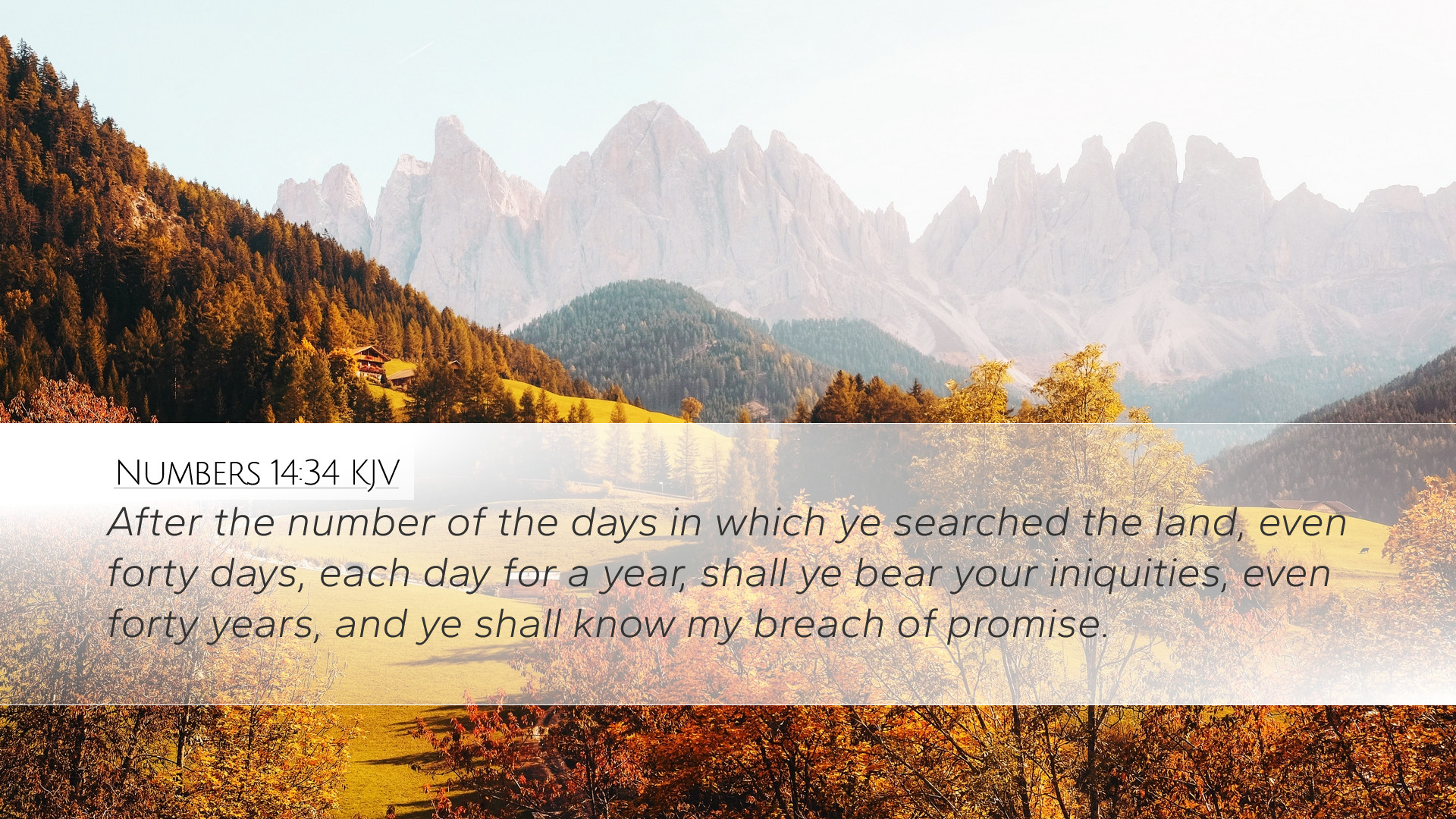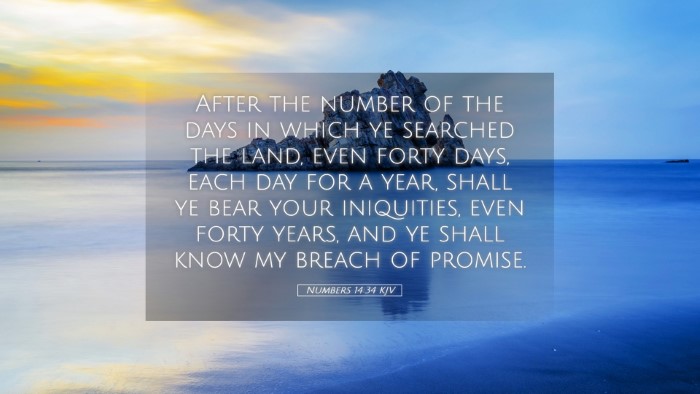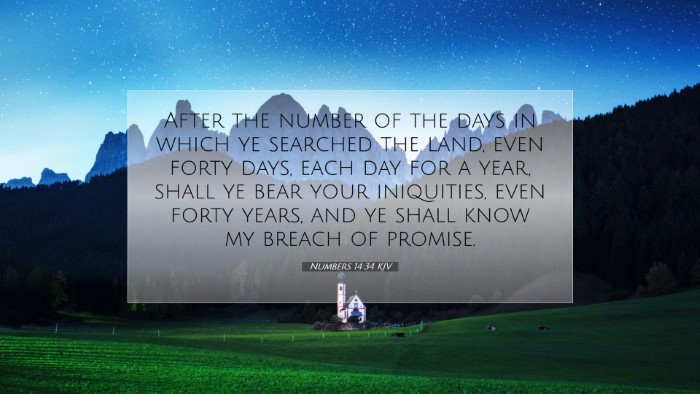Bible Commentary on Numbers 14:34
Verse: "And after the number of the days in which ye searched the land, even forty days, each day for a year, shall ye bear your iniquities, even forty years, and ye shall know my breach of promise."
Contextual Analysis
This verse occurs in the broader narrative of the Israelite journey through the wilderness following their exodus from Egypt. The report of the spies sent to scout the land of Canaan leads to a disastrous loss of faith among the Israelites, prompting God to pronounce judgment upon them.
The Significance of Time
- Forty Days Spying, Forty Years Wandering: The Israelites spent forty days observing the land of Canaan, and as a direct consequence of their disbelief and rebellion, God decreed that they would wander for forty years in the wilderness, one year for each day the spies explored.
- Divine Judgment and Instruction: This judgment serves not only as punishment but as divine instruction, reminding the Israelites of the seriousness of their decision to rebel against God’s command.
Thematic Insights
Matthew Henry, in his comprehensive commentary, emphasizes the consequences of disbelief shown by the Israelites and how this reflects God's response to his people's sin. The notion of time as a symbol of judgment is paramount; each year serves to remind them of their lack of faith.
The Nature of God's Promises
God's promises are portrayed as both overarching and dependable yet contingent upon obedience and faithfulness from His people. Adam Clarke elaborates on the metaphor of “breach of promise,” highlighting how the Israelites’ faithlessness not only impacted their present but their future inheritance in the Promised Land.
Pastoral Applications
This passage is significant for pastoral teaching, particularly regarding the themes of faithfulness, judgment, and the time ordained by God. It's crucial to address how God’s timing can be a response to human actions and inactions.
- Faith and Doubt: Pastors can encourage congregants to reflect on their own responses to God’s promises. Just as the Israelites faltered, congregations today may struggle in trusting God amidst challenges.
- Consequences of Sin: Remind congregants that unfaithfulness can lead to spiritual stagnation and suffering, underscoring the importance of adhering to God's path.
- Hope in Restoration: While God’s judgment was severe, His hope for restoration remained. There is always a pathway back to faithfulness, even after significant lapses.
Theological Implications
Albert Barnes highlights the theological implications of divine justice, grace, and mercy intertwined in this verse. It accentuates that while God judges, He does so with a view toward ultimate redemption, always desiring that His people turn back to Him.
Understanding God's Character
- God as Just: His justice is clear in imposing a year of wandering for each day of disobedience, reinforcing the gravity of sin.
- God as Patient: Despite human failings, He provides ample opportunity for repentance, ultimately leading us back to His promise.
Concluding Thoughts
Numbers 14:34 stands as a profound lesson not only for the Israelites but for readers today. The admonition to hold steadfast in belief, the warning against rebellion, and the assurance of God’s enduring promises beckon all to consider the depth of their faith.
As pastors, scholars, and theologians delve into this verse, they are reminded that the consequences of our actions echo throughout our spiritual journey, yet the assurance remains that God desires a relationship rooted in faith and trust.


